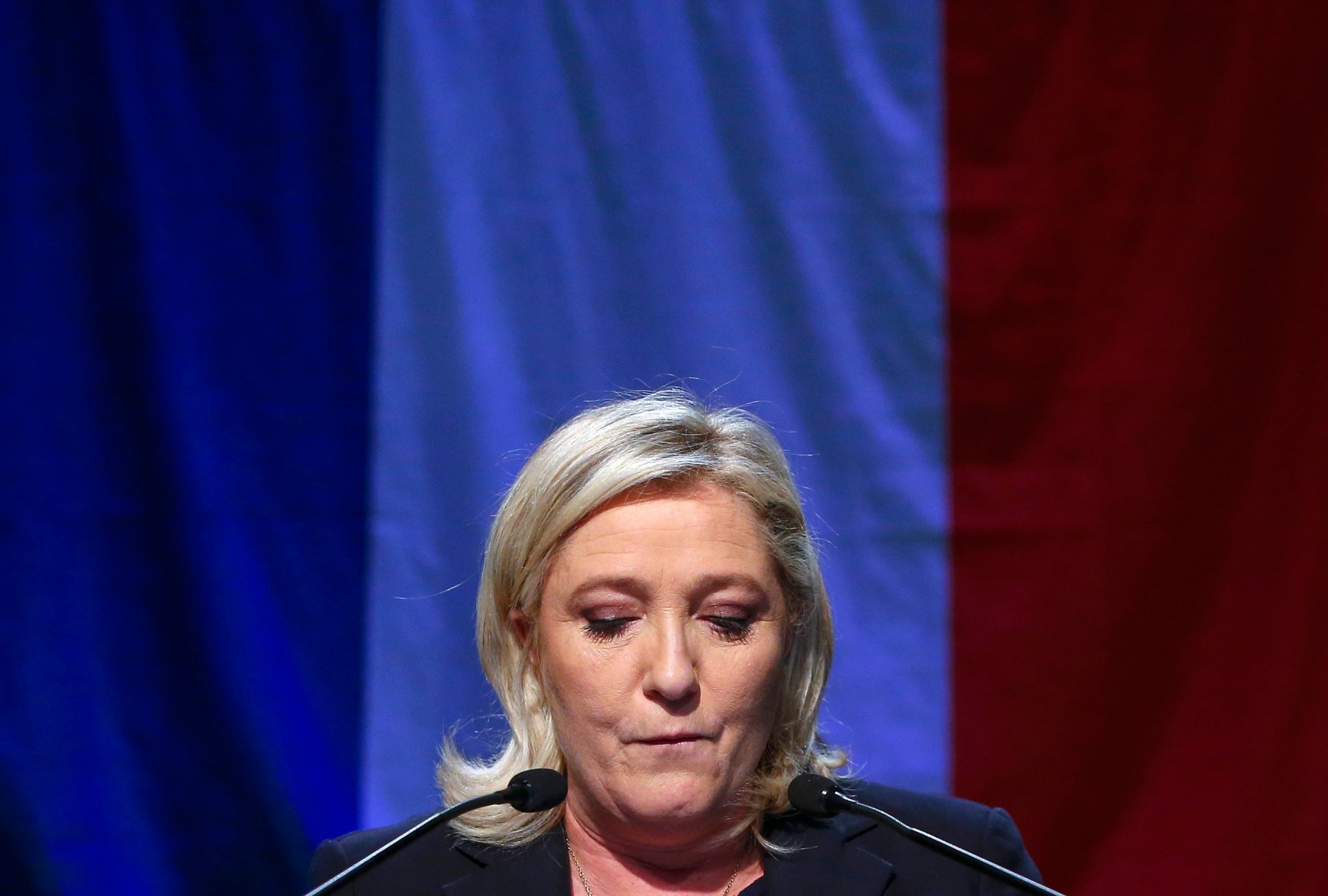
Supporters of France’s far-right Front National (FN) must have been almost able to taste victory before it was snatched away from them in the second round of regional elections yesterday. Smart electoral tactics by the party’s opponents and a surge in turnout by worried voters prevented Marine Le Pen, the FN’s leader, from taking a first-ever regional presidency for her party. But despite that setback, the bigger story is the rising arc of support for the French far right. It will only get more serious for France.
After running the table in the first round of voting last week, the FN failed to win a single region yesterday. Le Pen, who threw her own father out of the FN for anti-Semitic remarks, had hoped that purging her party of its most visibly radical elements would boost its electability. But this weekend shows that FN still struggles under the weight of its extremist past. Intense media coverage of the first-round result seems to have persuaded French voters that they had something at stake. Turnout increased from 50 percent in the first round to 58 percent yesterday.
France’s two-round voting system served as a democratic safety valve, giving the electorate a chance to rethink the outcome. The two-round system allowed the mainstream parties, the center-left Socialists and the center-right Republicans, to regroup after the first round and rally around consensus candidates.
But it came at a cost. While the Socialists of President Francois Hollande managed to hold onto five of the regions, they opted to pull their candidates from two to avoid splitting the vote in areas where the FN was expected to perform well. Compared to regional elections held five years ago, the Socialists saw their support plummet by 16 percent this time around. The center-right Republicans—led by former President Nicolas Sarkozy—can only be unnerved that they had to rely so heavily on the Socialist self-sacrifice to pull it off. This makes it all the more likely that the Republicans start tacking further right in an attempt to peel away voters from the FN.
The Front National may have been shut out of office, but the party’s overall strong showing points to the its arrival as the third major force in French politics. The 6.8 million votes cast for the FN yesterday was a record high, and there is no sign that support is ebbing. One out of every ten French people showed up to vote FN yesterday. The decision of the center-left and center-right to effectively join together to prevent the FN’s rise will feed Le Pen’s narrative that there is no real difference between the mainstream French parties. Factoring in terrorism and the rising fears of refugees, the Front National is the only party with momentum going into the campaign season for the 2017 presidential election. Other candidates will need to draw on the FN’s messaging if they want to compete.
Marine Le Pen lost a battle. But it will be a long war
More Must-Reads from TIME
- Donald Trump Is TIME's 2024 Person of the Year
- TIME’s Top 10 Photos of 2024
- Why Gen Z Is Drinking Less
- The Best Movies About Cooking
- Why Is Anxiety Worse at Night?
- A Head-to-Toe Guide to Treating Dry Skin
- Why Street Cats Are Taking Over Urban Neighborhoods
- Column: Jimmy Carter’s Global Legacy Was Moral Clarity
Contact us at letters@time.com